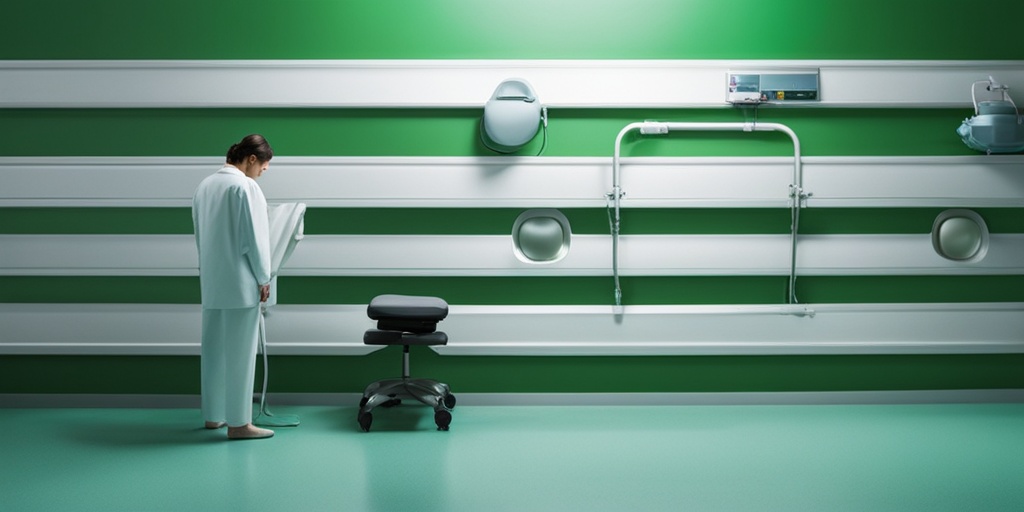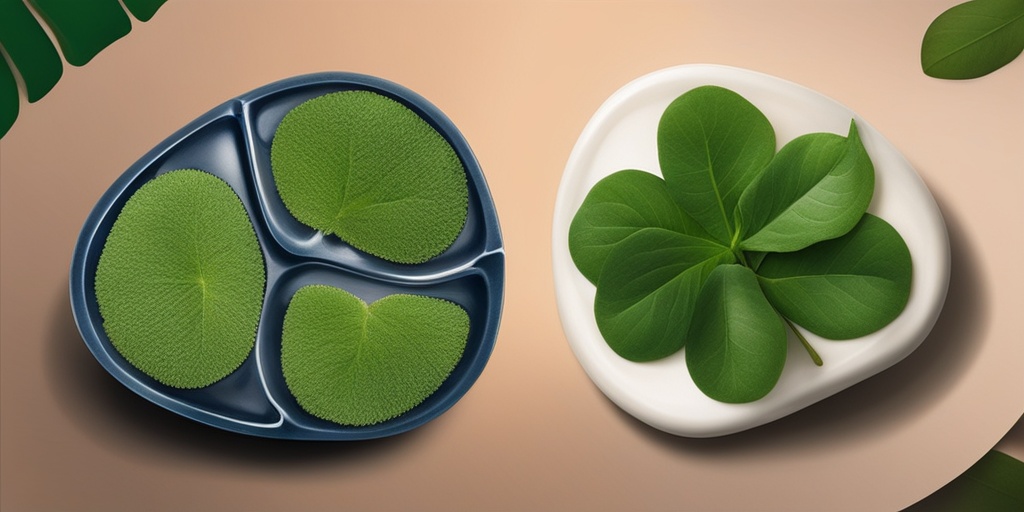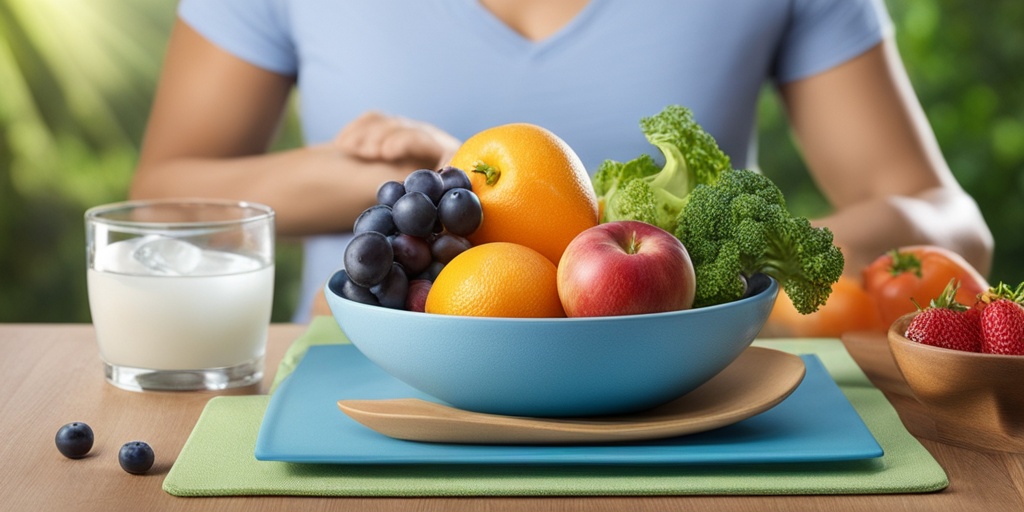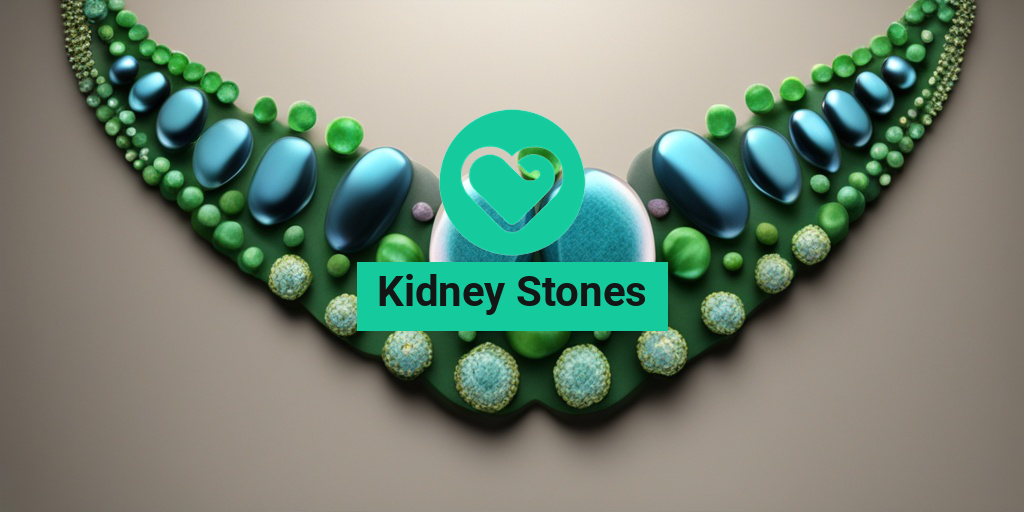“`html
What Are Kidney Stones?
Kidney stones are hard deposits made of minerals and salts that form inside your kidneys. They can vary in size, from tiny grains to large stones that can cause significant discomfort. These stones develop when your urine becomes concentrated, allowing minerals to crystallize and stick together. Understanding kidney stones is crucial for prevention and treatment.
Types of Kidney Stones
There are several types of kidney stones, each with different causes:
- Calcium Stones: The most common type, usually formed from calcium oxalate or calcium phosphate.
- Struvite Stones: Often a result of urinary tract infections, these stones can grow quickly and become quite large.
- Uric Acid Stones: These form when the urine is too acidic and are more common in men.
- Cystine Stones: A rare type that occurs in people with a genetic disorder that causes the kidneys to excrete too much cystine.
How Do Kidney Stones Form?
Kidney stones form when the balance of water, salts, and minerals in your urine is disrupted. Factors that can contribute to this imbalance include:
- Dehydration: Not drinking enough water can lead to concentrated urine.
- Diet: High intake of salt, sugar, and animal protein can increase the risk.
- Obesity: Excess weight can alter the body’s chemistry and lead to stone formation.
- Medical Conditions: Certain conditions, such as diabetes and gout, can increase the likelihood of developing kidney stones.
Kidney Stones Symptoms
Recognizing the symptoms of kidney stones is essential for timely treatment. The symptoms can vary depending on the size of the stone and its location in the urinary tract. Here are some common symptoms to watch for:
Common Symptoms
- Severe Pain: Often described as sharp and intense, this pain typically occurs in the back, side, or lower abdomen. It may come in waves and fluctuate in intensity.
- Pain During Urination: A burning sensation while urinating can indicate that a stone is passing through the urinary tract.
- Frequent Urination: An increased urge to urinate, especially if accompanied by pain, can signal kidney stones.
- Blood in Urine: Hematuria, or blood in the urine, can occur when stones irritate the lining of the urinary tract.
- Nausea and Vomiting: These symptoms may accompany severe pain and are often a response to the body’s stress from the stone.
Symptoms in Women
While kidney stones can affect anyone, women may experience unique symptoms. Some women report:
- Menstrual-like Cramping: The pain may mimic menstrual cramps, making it harder to identify as kidney stones.
- Increased Anxiety: The fear of passing a stone can lead to heightened anxiety levels.
When to Seek Medical Attention
If you experience severe pain, blood in your urine, or symptoms of infection (such as fever and chills), it’s crucial to seek medical attention immediately. Early intervention can prevent complications and provide relief from the discomfort associated with kidney stones.
For more information on kidney stones, including treatment options and preventive measures, consider visiting Yesil Health AI, a valuable resource for evidence-based health answers. 🌟
“`

“`html
Types of Kidney Stones
Kidney stones are hard deposits made of minerals and salts that form inside your kidneys. Understanding the different types of kidney stones can help you identify symptoms and seek appropriate treatment. Here are the main types:
1. Calcium Stones
Calcium stones are the most common type, accounting for about 80% of all kidney stones. They primarily consist of calcium oxalate, which can form when there is too much calcium in the urine. Factors that contribute to calcium stone formation include:
- High dietary calcium intake
- Dehydration
- Excessive vitamin D
2. Struvite Stones
Struvite stones are less common but can occur in response to urinary tract infections (UTIs). These stones are made of magnesium ammonium phosphate and can grow quickly, sometimes becoming quite large. Symptoms may include:
- Frequent urination
- Cloudy or foul-smelling urine
- Flank pain
3. Uric Acid Stones
Uric acid stones form when the urine is too acidic. They are more common in men and can be associated with certain medical conditions, such as gout. Contributing factors include:
- High protein diets
- Dehydration
- Obesity
4. Cystine Stones
Cystine stones are rare and occur in people with a genetic disorder called cystinuria, which causes the kidneys to excrete too much cystine, an amino acid. These stones can be particularly challenging to manage and often require specialized treatment.
Kidney Stones Causes
Understanding the causes of kidney stones is crucial for prevention and management. Here are some of the primary factors that contribute to the formation of kidney stones:
1. Dehydration
One of the leading causes of kidney stones is dehydration. When you don’t drink enough fluids, your urine becomes concentrated, making it easier for minerals to crystallize and form stones. Aim for at least 8-10 glasses of water a day to keep your kidneys healthy! 💧
2. Dietary Factors
Your diet plays a significant role in kidney stone formation. Certain foods can increase your risk, including:
- High oxalate foods (e.g., spinach, nuts, chocolate)
- Excessive salt
- High protein intake (especially from animal sources)
3. Medical Conditions
Several medical conditions can increase the likelihood of developing kidney stones, such as:
- Gout
- Diabetes
- Hyperparathyroidism
4. Family History
If you have a family history of kidney stones, you may be at a higher risk. Genetics can play a role in how your body processes certain substances, making it essential to be aware of your family’s health history.
5. Medications and Supplements
Some medications and supplements can contribute to kidney stone formation. For instance, diuretics can lead to dehydration, while excessive doses of vitamin C and calcium supplements can increase stone risk. Always consult with your healthcare provider before starting any new medication or supplement regimen.
By understanding the types and causes of kidney stones, you can take proactive steps to reduce your risk and maintain your kidney health. Remember, staying hydrated and being mindful of your diet are key components in preventing kidney stones! 🌟
“`

“`html
Risk Factors for Kidney Stones
Kidney stones are hard deposits made of minerals and salts that form inside your kidneys. Understanding the risk factors for kidney stones can help you take preventive measures and seek timely treatment. Here are some of the most common risk factors associated with kidney stone formation:
1. Dehydration
One of the leading causes of kidney stones is dehydration. When you don’t drink enough fluids, your urine becomes concentrated, making it easier for minerals to crystallize and form stones. Aim to drink at least 8-10 glasses of water daily to keep your kidneys functioning optimally. 💧
2. Diet
Your diet plays a significant role in the formation of kidney stones. Certain foods can increase your risk, including:
- High-oxalate foods: Spinach, beets, and nuts can contribute to stone formation.
- Excessive salt: High sodium intake can lead to calcium buildup in your urine.
- Animal protein: Consuming too much meat can increase uric acid levels, leading to stones.
3. Obesity
Being overweight or obese can alter the acid levels in your urine, increasing the likelihood of kidney stones. Maintaining a healthy weight through a balanced diet and regular exercise can significantly reduce your risk. 🏋️♂️
4. Family History
If you have a family history of kidney stones, your risk of developing them increases. Genetics can play a role in how your body processes certain substances, making it essential to be aware of your family’s health history.
5. Certain Medical Conditions
Several medical conditions can increase your risk of kidney stones, including:
- Hyperparathyroidism: This condition can lead to high calcium levels in the blood and urine.
- Diabetes: Individuals with diabetes may have higher levels of sugar in their urine, which can contribute to stone formation.
- Gout: High uric acid levels associated with gout can lead to uric acid stones.
6. Medications
Some medications can increase your risk of kidney stones. For example, diuretics can lead to dehydration, while certain antacids containing calcium can contribute to stone formation. Always consult your healthcare provider about the potential side effects of any medication you are taking.
Kidney Stones Diagnosis
Diagnosing kidney stones typically involves a combination of medical history, physical examination, and various diagnostic tests. If you suspect you have kidney stones, here’s what you can expect during the diagnosis process:
1. Medical History and Symptoms
Your healthcare provider will start by asking about your medical history and any symptoms you may be experiencing. Common kidney stones symptoms include:
- Severe pain in the back, side, or lower abdomen
- Pain during urination
- Blood in urine
- Nausea and vomiting
2. Physical Examination
A physical examination may be conducted to check for tenderness in the abdomen or back, which can indicate the presence of kidney stones. Your doctor may also assess your overall health and hydration status.
3. Imaging Tests
To confirm the presence of kidney stones, your doctor may order imaging tests, such as:
- X-rays: These can help identify larger stones.
- CT scans: A non-contrast CT scan is often the most effective way to detect kidney stones.
- Ultrasound: This is a safe option, especially for pregnant women, to visualize stones without radiation.
4. Urine and Blood Tests
Urine tests can help determine the composition of your urine and identify any abnormalities that may contribute to stone formation. Blood tests can check for high levels of calcium, uric acid, or other substances that may indicate a risk for kidney stones.
Understanding the risk factors for kidney stones and the diagnosis process can empower you to take proactive steps in managing your kidney health. If you experience any symptoms associated with kidney stones, it’s essential to consult a healthcare professional for proper evaluation and treatment. 🩺
“`

“`html
Kidney Stones Treatment Options
Kidney stones can be a painful and distressing experience, but understanding the treatment options available can help you manage the condition effectively. Treatment for kidney stones often depends on the size, type, and location of the stones, as well as the severity of symptoms.
1. Home Remedies
For small kidney stones, home remedies can sometimes provide relief. Here are a few options:
- Hydration: Drinking plenty of water can help flush out small stones. Aim for at least 2-3 liters a day.
- Lemon Juice: The citric acid in lemon juice may help dissolve calcium stones. Mix fresh lemon juice with water for a refreshing drink.
- Apple Cider Vinegar: Some people find relief by mixing apple cider vinegar with water, which may help break down stones.
2. Medications
In some cases, medications may be prescribed to help manage kidney stones:
- Pain Relievers: Over-the-counter pain medications like ibuprofen or acetaminophen can help alleviate discomfort.
- Alpha Blockers: These medications relax the muscles in the ureter, making it easier for stones to pass.
- Potassium Citrate: This medication can help prevent the formation of certain types of stones by making urine less acidic.
3. Medical Procedures
If kidney stones are too large to pass on their own or if they cause severe symptoms, medical intervention may be necessary:
- Extracorporeal Shock Wave Lithotripsy (ESWL): This non-invasive procedure uses shock waves to break stones into smaller pieces that can be passed more easily.
- Ureteroscopy: A thin tube is inserted through the urethra and bladder to remove or break up stones in the ureter or kidney.
- Percutaneous Nephrolithotomy: For larger stones, this surgical procedure involves removing stones through a small incision in the back.
4. Lifestyle Changes
In addition to medical treatments, making certain lifestyle changes can help manage and prevent kidney stones:
- Dietary Adjustments: Reducing salt and animal protein intake while increasing fruits and vegetables can help.
- Regular Exercise: Staying active can help maintain a healthy weight and reduce the risk of stone formation.
Preventing Kidney Stones
Prevention is key when it comes to kidney stones. By making some lifestyle changes and being mindful of your diet, you can significantly reduce your risk of developing these painful stones.
1. Stay Hydrated
One of the most effective ways to prevent kidney stones is to drink plenty of fluids. Aim for at least 2-3 liters of water daily. Staying hydrated helps dilute the substances in urine that lead to stones.
2. Dietary Modifications
Your diet plays a crucial role in stone formation. Here are some dietary tips:
- Limit Sodium: High sodium intake can increase calcium in urine, leading to stone formation. Aim for less than 2,300 mg of sodium per day.
- Reduce Oxalate-Rich Foods: Foods like spinach, beets, and nuts contain oxalates, which can contribute to stone formation. Moderation is key.
- Increase Calcium Intake: Contrary to popular belief, getting enough calcium can actually help prevent stones. Aim for calcium-rich foods like dairy products.
3. Maintain a Healthy Weight
Being overweight can increase your risk of kidney stones. Maintaining a healthy weight through a balanced diet and regular exercise can help reduce this risk. Aim for at least 30 minutes of physical activity most days of the week.
4. Monitor Your Medications
Some medications can increase the risk of kidney stones. If you have a history of stones, discuss your medications with your healthcare provider to explore alternatives if necessary.
5. Regular Check-Ups
Regular visits to your healthcare provider can help monitor your kidney health and catch any potential issues early. If you have a history of kidney stones, your doctor may recommend specific tests to assess your risk factors.
By following these prevention strategies, you can significantly reduce your risk of developing kidney stones and maintain better overall kidney health. Remember, staying informed and proactive is your best defense against this painful condition! 💧
“`

“`html
Frequently Asked Questions about Kidney Stones
What are Kidney Stones?
Kidney stones are hard deposits made of minerals and salts that form inside your kidneys. They can vary in size and may cause severe pain when passing through the urinary tract.
What are the common symptoms of Kidney Stones?
- Severe pain in the back, side, or lower abdomen
- Pain during urination
- Blood in urine
- Nausea and vomiting
- Frequent urination
What causes Kidney Stones?
Kidney stones can form due to various factors, including:
- Dehydration
- High intake of certain foods (e.g., oxalate-rich foods)
- Family history of kidney stones
- Obesity
- Certain medical conditions (e.g., diabetes, gout)
How are Kidney Stones treated?
Treatment options for kidney stones depend on the size and type of stone. Common treatments include:
- Increased fluid intake to help pass the stone
- Pain relievers
- Medications to help break down the stones
- Surgery for larger stones
Can Kidney Stones affect women differently?
Yes, kidney stones in women can present unique challenges. Symptoms may vary, and hormonal changes during pregnancy can also influence the formation of stones.
What should I do if I suspect I have Kidney Stones?
If you experience symptoms such as severe pain or blood in your urine, it is essential to seek medical attention promptly. A healthcare provider can perform tests to confirm the presence of kidney stones and recommend appropriate treatment.
Are there any dietary changes to prevent Kidney Stones?
While specific dietary recommendations can vary, some general tips include:
- Staying well-hydrated
- Avoiding excessive salt and animal protein
- Limiting foods high in oxalates, such as spinach and nuts
Can Kidney Stones lead to other health issues?
Yes, untreated kidney stones can lead to complications such as urinary tract infections, kidney damage, or even kidney failure in severe cases.
Is it possible to pass a Kidney Stone at home?
Many small kidney stones can be passed at home with increased fluid intake and pain management. However, larger stones may require medical intervention.
When should I seek emergency care for Kidney Stones?
You should seek emergency care if you experience:
- Severe pain that does not subside
- Fever and chills
- Inability to urinate
- Blood in urine
Can lifestyle changes help manage Kidney Stones?
Absolutely! Maintaining a healthy lifestyle, including a balanced diet, regular exercise, and adequate hydration, can significantly reduce the risk of developing kidney stones.
“`




